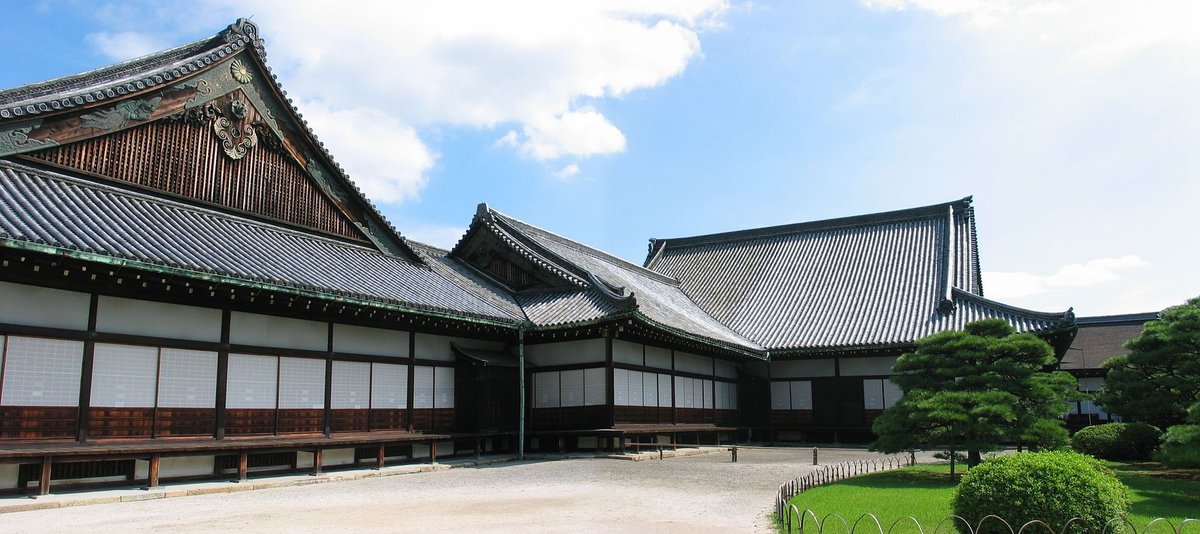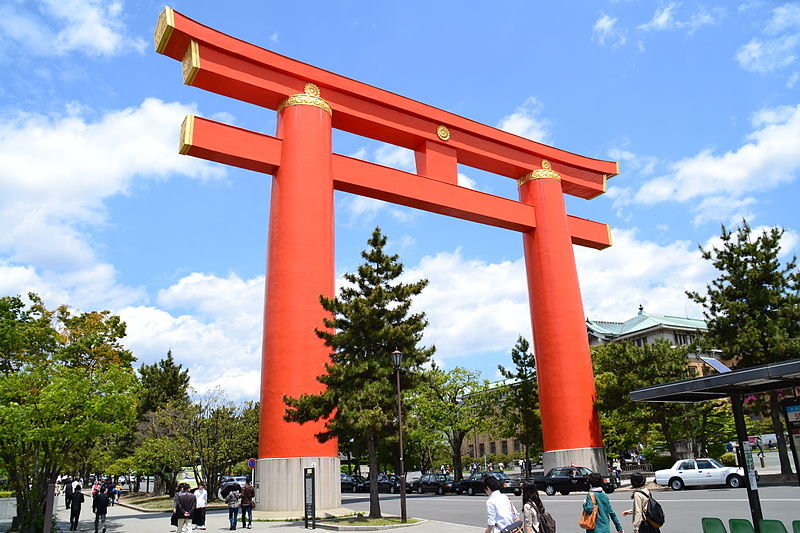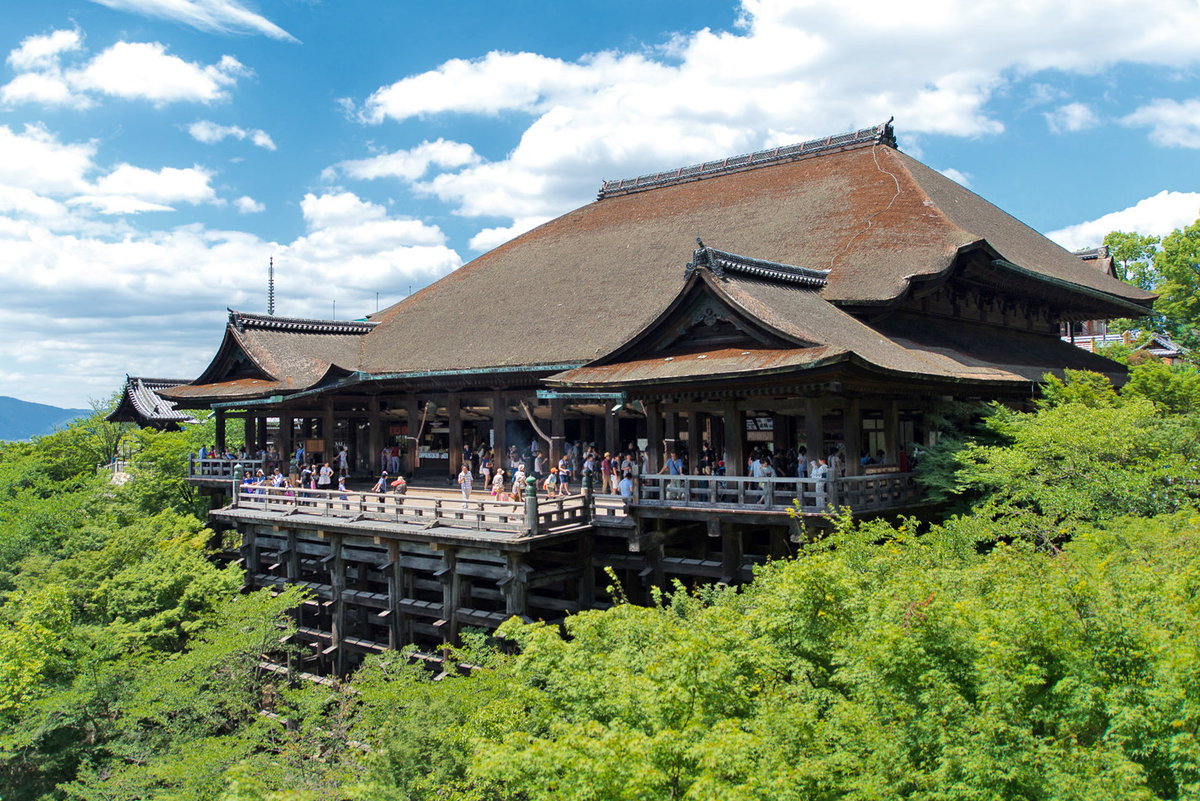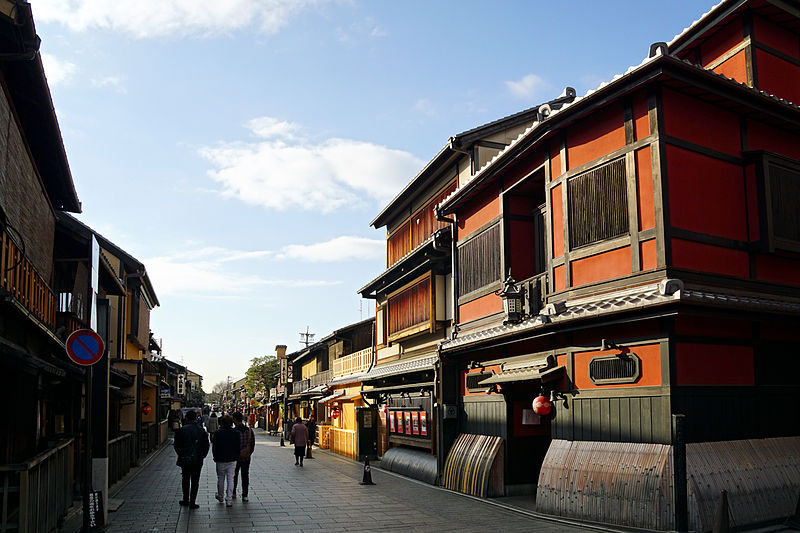1-Day Kyoto Tour『Nijo Castle,Kinkaku-ji ,Gosho,Heian Jingu ,Kiyomizu ,Gion 』
One of the most popular tourist spots in Kyoto.Entry of international visitors generally requires application in advance, but participants of this tour can enter only by going through a brief
Updated Date : 2016-11-25 11:59:29
この記事のシェアをお願いします。☺
1-Day Kyoto Tour Itinerary
08:20 - 08:40 Hotels in Kyoto City
Pick-up service from hotels to New Miyako Hotel
34.98397577396043
135.7561725564301
34.98397577396043,135.7561725564301
●Tour Itinerary
・Nijo Castle
・Kinkaku-ji Temple
◆Japanese-style lunch
・Gosho-Imperial
・Heian Jingu Shrine
・Kiyomizu-dera Temple
・Gion Maiko street
※ For the move, it varies depending on the number of participants, the traffic situation.
17:30 - 18:30 Drop-off Service
From Kiyomizu-dera Temple to each hotel
[Remarks] During the Gion Festival (Sakimatsuri, July 14 - 16), drop-off service to Karasuma Kyoto Hotel and Hotel Nikko Princess Kyoto will be unavailable due to traffic restrictions.
見どころ紹介
Nijo Castle
UNESCO World Heritage Site. Tour the historical castle completed in 1626, which was built to provide lodging for Tokugawa Shogun and as a palladium for Kyoto Imperial Palace.
[Remarks] Nijo Castle is closed on Tuesdays (or Wednesday if Tuesday is a national holiday) in January, July, August, and December and over the New Year's holidays. On these days, the tour will visit Ryoan-ji Temple.
Nijō Castle
In 1601, Tokugawa Ieyasu, the founder of the Tokugawa Shogunate, ordered all the feudal lords in Western Japan to contribute to the construction of Nijō Castle, which was completed during the reign of Tokugawa Iemitsu in 1626. Parts of Fushimi Castle, such as the main tower and the karamon, were moved here in 1625-26. It was built as the Kyoto residence of the Tokugawa Shoguns. The Tokugawa Shogunate used Edo as the capital city, but Kyoto continued to be the home of the Imperial Court. Kyoto Imperial Palace is located north-east of Nijo Castle.
Nijō Castle
35.01417
135.7475
0
0
0
15
35.01417,135.7475,0,0,0
Kinkaku-ji Temple
Visit this World Heritage Site, also known as the Golden Pavilion. The wooden architecture is covered in thin layers of pure gold and is surrounded by a beautiful pond.
Kinkaku-ji
The site of Kinkaku-ji was originally a villa called Kitayama-dai (北山第), belonging to a powerful statesman, Saionji Kintsune (ja:西園寺公経). Kinkaku-ji's history dates to 1397, when the villa was purchased from the Saionji family by Shogun Ashikaga Yoshimitsu, and transformed into the Kinkaku-ji complex. When Yoshimitsu died, the building was converted into a Zen temple by his son, according to his wishes.
Kinkaku-ji
35.03944
135.72944
0
0
0
15
35.03944,135.72944,0,0,0
Kyoto Imperial Palace
Kyoto Imperial Palace
The Kyoto Imperial Palace (京都御所 Kyoto-gosho) is the former ruling palace of the Emperor of Japan. The Emperors have resided at the Tokyo Imperial Palace since the Meiji Restoration in 1869, when the preservation of the Kyoto Imperial Palace was ordered in 1877. Today, the grounds are open to the public, and the Imperial Household Agency hosts public tours of the buildings several times a day.
Kyoto Imperial Palace
35.02528
135.76222
0
0
0
15
35.02528,135.76222,0,0,0
Heian Jingu Shrine
During the Jidai Festival on October 22, Heian Jingu Shrine is closed to the public and will be replaced in the itinerary by Chishaku-in Temple. If the Jidai Festival is postponed, the itinerary change will still be implemented on the postponed festival date.
Heian Shrine
In 1895, a partial reproduction of the Heian Palace from Heian-kyō (the former name of Kyoto) was planned for construction for the 1100th anniversary of the establishment of Heian-kyō. The Industrial exposition fair (an exhibition of development of Japanese and foreign cultures) was held in Kyoto that year, where the replica was to be the main monument. However, failure to buy enough land where the Heian Palace used to stand, the building was built in Okazaki at 5/8 scale of the original. The Heian-jingū was built according to designs by Itō Chūta.
Heian Shrine
35.01667
135.78222
0
0
0
15
35.01667,135.78222,0,0,0
Kiyomizu-dera Temple
The view of Kyoto from the World Heritage Site of Kiyomizu-dera is superb. The historic shopping lane that leads to the temple adds to a wonderful experience.
Kiyomizu-dera
Kiyomizu-dera was founded in the early Heian period. The temple was founded in 778, and its present buildings were constructed in 1633, ordered by the Tokugawa Iemitsu. There is not a single nail used in the entire structure. It takes its name from the waterfall within the complex, which runs off the nearby hills. Kiyomizu means clear water, or pure water.
It was originally affiliated with the old and influential Hossō sect dating from Nara times.However, in 1965 it severed that affiliation, and its present custodians call themselves members of the "Kitahossō" sect.
Kiyomizu-dera
34.995
135.785
0
0
0
15
34.995,135.785,0,0,0
Gion Hanamikouji
A typical kaiseki restaurant in Gion
Part of this district has been declared a national historical preservation district. Recently, the City of Kyoto completed a project to restore the streets of Gion, which included such plans as moving all overhead utilities underground as part of the ongoing effort to preserve the original beauty of Gion.
Gion
This neighborhood in Kyoto has five hanamachi (geiko communities. There are five hanamachi in Kyoto): Gion Kōbu (祇園甲部) and Gion Higashi (祇園東), which split many years ago; Kōbu is larger, occupying most of the district, while Higashi is smaller and occupies the northeast corner, centered on its rehearsal hall. Despite the considerable decline in the number of geisha in Gion in the last one hundred years, it is still famous for the preservation of forms of traditional architecture and entertainment.
Gion - Wikipedia, the free encyclopedia
35.003496
135.775051
0
0
0
15
35.003496,135.775051,0,0,0
この記事のシェアをお願いします。☺
関連記事
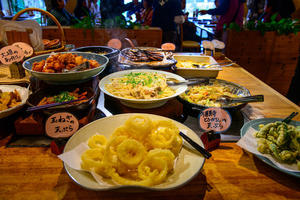
|
바다의 교토 마이즈루「 역사와 먹거리 만끽」투어 |
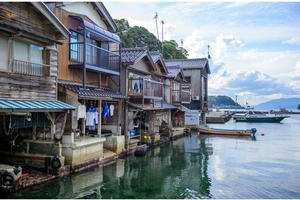
|
Sea Side KYOTO【일본3경「아마노하시타테」/수상가옥「이네후나야」】1일투어(KSPK01) |
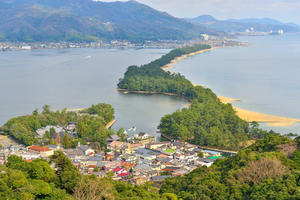
|
교토「아마노하시타테」수상가옥「이네후나야」온천여행(1박2일) |
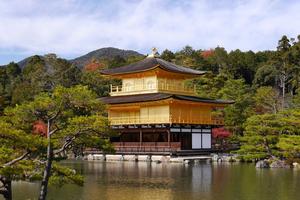
|
京都『二条城、金閣寺 ,御所,平安神宮 ,清水寺 ,祇園 』1-Day定番コース(KTJ01) |
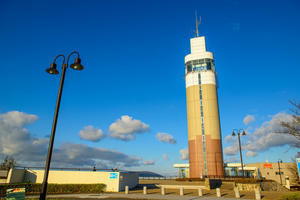
|
교토마이즈루 투어(반나절) |
